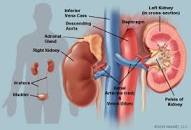
Recently Diagnosed or Relapsed? Stop Looking For a Miracle Cure, and Use Evidence-Based Therapies To Enhance Your Treatment and Prolong Your Remission
Multiple Myeloma an incurable disease, but I have spent the last 25 years in remission using a blend of conventional oncology and evidence-based nutrition, supplementation, and lifestyle therapies from peer-reviewed studies that your oncologist probably hasn't told you about.
Click the orange button to the right to learn more about what you can start doing today.
- You are here:
- Home »
- Blog »
- Multiple Myeloma »
- Light Chain Myeloma- Cure V. Control?
Light Chain Myeloma- Cure V. Control?

Dear Mr. Emerson: Thank God I have found a site like yours. I suffer from light chain myeloma diagnosed in January 2023. For 10 months I have undergone chemotherapy with Bortezomib, Dexamethasone, Cyclophosphamide -this last one replaced by Lenalidomide for the last 3 months. So far the treatment has been a failure. No real improvement, just the side effects.
Therefore I have refused to continue with it. Now I am looking for other options. The problem is most alternative or non conventional treatments focus on the most common types of myeloma and not the one I suffer. Actually few sites and advisors deal with it.
- cataracts,
- neuropathies,
- and particularly loss of memory and cognitive abilities.
Hi Roberto-
What is Light Chain Myeloma?
Light chain myeloma, also known as light chain multiple myeloma or Bence Jones myeloma, is a subtype of multiple myeloma, which is a cancer of plasma cells. Plasma cells are a type of white blood cell that produces antibodies to help the body fight infections. In multiple myeloma, these plasma cells become cancerous and accumulate in the bone marrow, leading to various complications.
Light chain myeloma is distinguished by the type of abnormal proteins produced by the cancerous plasma cells. Normally, plasma cells produce immunoglobulins, which are large proteins made up of two heavy chains and two light chains. In light chain myeloma, the cancerous plasma cells produce abnormal light chains (also known as Bence Jones proteins) without the corresponding heavy chains.
The presence of these abnormal light chains can cause kidney damage and other complications. The excess light chains are filtered by the kidneys and can form crystals, leading to kidney problems such as renal failure. Therefore, monitoring kidney function is crucial in the management of light chain myeloma.
- MM Survivor
- MM Cancer Coach
- Director PeopleBeatingCancer
Treatment of Myeloma: Cure vs Control
“Although not often openly acknowledged, “cure vs control” is the dominant philosophical difference behind many of the strategies, trials, and debates related to the management of myeloma. Should we treat patients with myeloma with multidrug, multitransplant combinations with the goal of potentially curing a subset of patients, recognizing that the risk of adverse events and effect on quality of life will be substantial? Or should we address myeloma as a chronic incurable condition with the goal of disease control, using the least toxic regimens, emphasizing a balance between efficacy and quality of life, and reserving more aggressive therapy for later?
Rapid improvement in renal function in patients with multiple myeloma and renal failure treated with bortezomib
Curcumin Enhances Cytotoxic Effects of Bortezomib in Human Multiple Myeloma H929 Cells: Potential Roles of NF-κB/JNK
“Conclusion- In the present study, we found that curcumin as a chemosensitizer could enhance the cytotoxic effect of PS-341. Combined curcumin and PS-341 treatment interacts with NF-κB signaling and alters NF-κB p65 expressions and distributions.
Pre-treatment with JNK inhibitor SP600125 restored H929 cells’ survival and attenuated NF-κB inactivation as a response to curcumin and PS-341. These results suggest the cytotoxic effect of combined treatment on H929 cells attributes to interaction with NF-κB signaling, and this mechanism might be partly JNK-dependent.”



